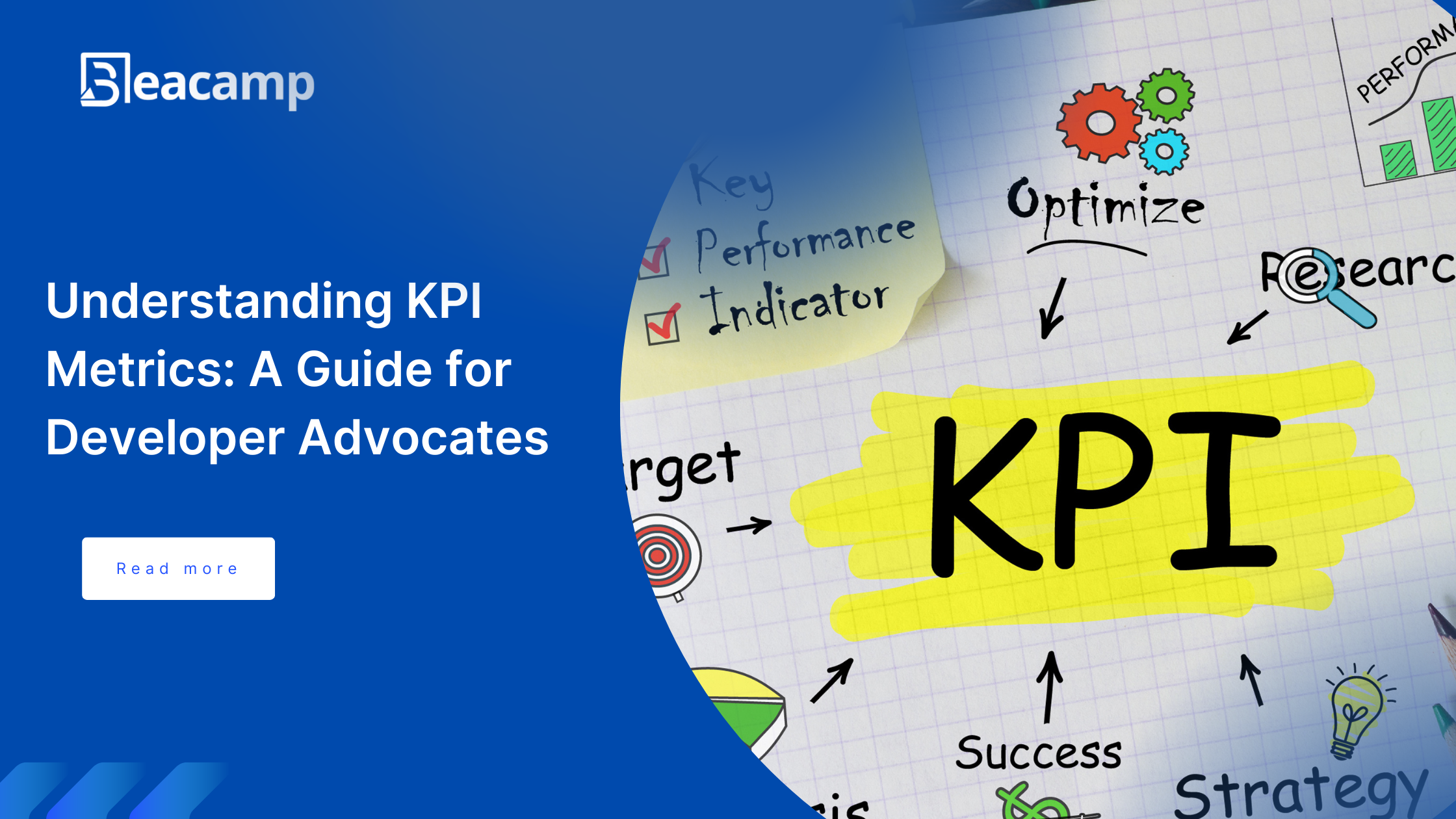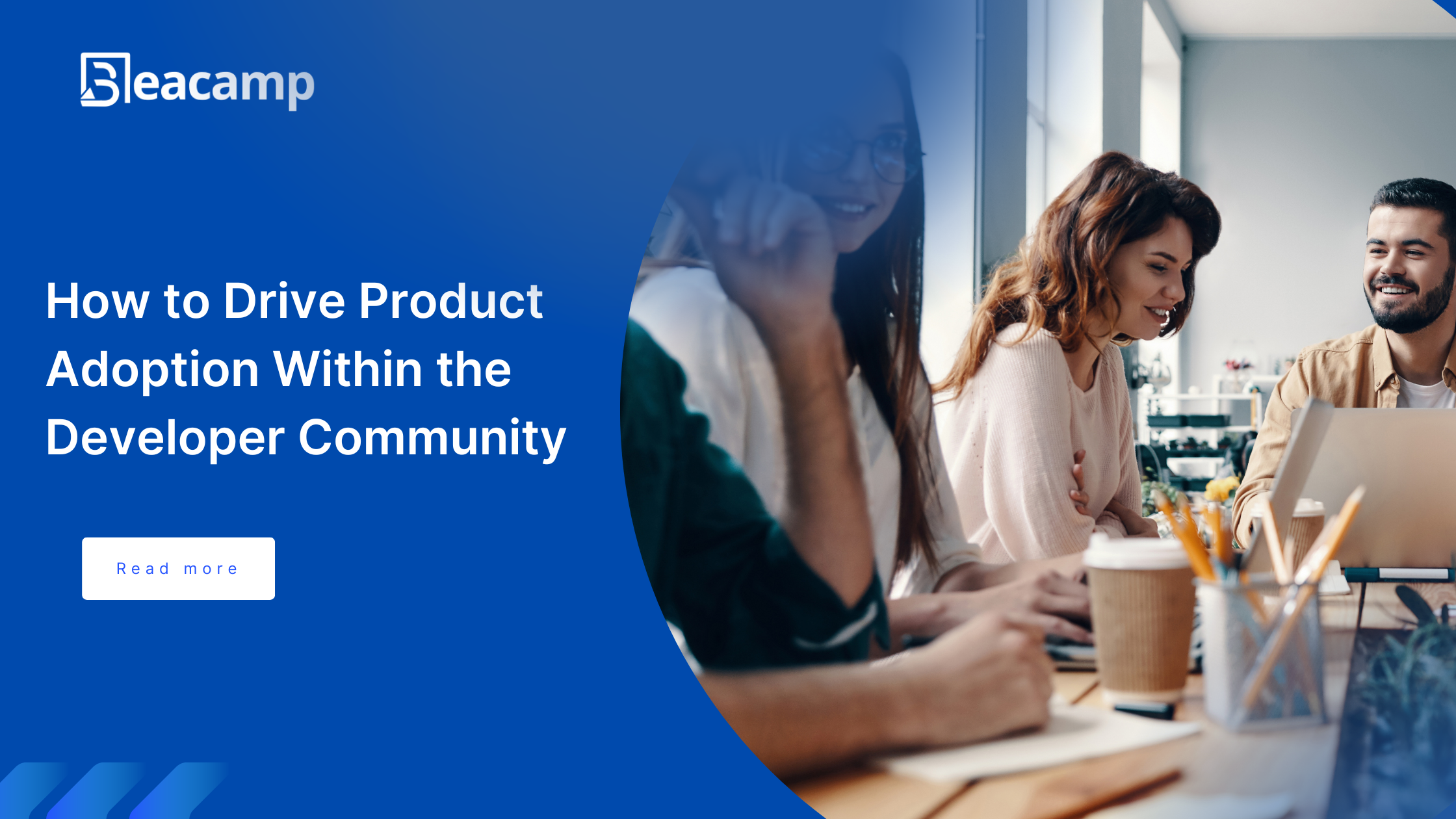Introduction
As a developer relations or developer marketer, it is your job to engage developers daily or build a developer community, and a great way to do this is by hosting developer-focused events. This helps you connect with developers who are eager to learn or meet new people.
In this article, you will learn some of the best practices for hosting a developer-focused event and making it a huge success.
Let’s learn!
Defining Clear Goals for the Developer-focused Event

Before organizing an event, you must have set goals and objectives you aim to achieve by the end of the event. These goals could be identifying your target audience, choosing the right event type (virtual or in-person) to engage with your audience, and choosing an event theme; this could be about a tech concept, tool, or technology. Your event theme should be focused on a particular niche or audience, so promoting it to your audience would be easy.
Here are some examples of developer-focused events you could take inspiration from:
By having these goals, you can develop an event strategy that resonates with your targeted audience of developers, ensuring a unique and unforgettable experience for the attendees.
Choosing a Convenient Location and Time

After setting your goals for the event, you understand who your audience is and what type of event would reach them; next, think about the location where at least 80% of your audience can attend. Based on your goals and event type, you understand whether it’s an in-person or virtual location within your reach.
Choosing a location is tricky because you must factor in the number of expected attendees, a safe place where the developers can charge their laptops (if they decide to bring theirs), and an accessible location if it’s a physical event and if it’s a virtual event, you need to know the right platform to use your event on, it could be YouTube live stream, or Zoom event or any platform of your choosing.
All these factors help you choose the perfect location for your event. Next is deciding on a time; choose a time that works for your audience. Your event shouldn’t start at the break of dawn or sundown. It should be a time that would help you pull your audience.
Plan the Agenda Carefully

After setting your goals, date, and time, the next step is to work on an agenda. Your agenda should be centered around your goals and address relevant topics for your audience. In your agenda, you should identify the topics you want to discuss at the event and include formats of sessions like hands-on workshops, panel discussions, and lightning talks. It should encourage two-way communication and ensure that the attendees participate every step of the way.
Also, having such diverse sessions shows you care about your audience’s attention span. You can also get feedback from other event organizers and speakers to understand what has worked for other past events. You can rewatch virtual events, see what they did right, and use that to enhance your event.
Getting Speakers

Most events use software to organize speakers, such as Sessionize and PaperCall.io, to call for CFPs (Call for Paper/Proposal); this platform lets speakers submit a talk or a topic proposal based on your event theme. Using platforms like this helps you get great speakers and get a preview of what they will talk about to decide if they are a great fit for your audience. This is a better opportunity than reaching speakers individually; you might still need to get a reply.
Using these platforms lets the speakers know there is a time limit to the CFP submission, and you would usually get a pool of speakers to choose from. You can read more on other software event organizers use here.
Promoting the Events

Thanks to social media, there are so many unique ways to reach your target audience. You can explore various platforms to find developers. Promote your events on the social media platforms that your audience frequently uses.
Beyond promoting your events, social media lets you directly build relationships with your target audience, lets you participate in discussions, and could help you build trust within the developer community.
For instance, if you’re hosting a virtual event related to React, you can promote it on the React subreddit, LinkedIn groups focused on React or JavaScript topics, or on Twitter. These online communities help you understand your target audience’s needs, preferences, and behaviors, which could help your chances of promoting the events.
Engaging during the Event

At the event, you should make sure attendees are engaged and not bored. Some activities you can do in between include Kahoot games, icebreaker quizzes, or networking sessions where they can take pictures and interact with each other (if it’s an in-person event).
This gives attendees time to relax and have conversations. Using event hashtags, you can also ask them to share their favorite talk, quote, or moment from the event on social media. This helps increase the event’s social engagement and attract more attention.
Follow-up the Attendees

Following up on your attendees is a great post-event that helps you maintain engagement, get valuable feedback, and foster relationships during the event. This approach shows a commitment to continuous improvement in your next events.
When you follow up with attendees, start by thanking them for attending, then ask for constructive criticism and opinions to help you improve. The feedback could be about the event theme, venue, speakers, attendees, suggested topics, and the value gotten from the event. You can use online survey tools like SurveyMonkey to gather feedback and make it easy to review.
Besides following up with attendees to ask for feedback, you can share speaker slides, recordings of keynotes or panel discussions, or pictures of amazing moments of the event. This makes the attendees feel loved and welcomed, and they can easily review the slides if they missed anything and catch up. Also, most speakers put down their contact information so the attendees can easily reach out to the speakers if they have any questions they couldn’t ask during the event.
Lastly, you can keep in touch with the attendees by starting a newsletter to keep them updated on future events or collaborations; this strengthens the bonds between you and the developer community and lays a base for partnership in the future.
Conclusion
To wrap it up, hosting developer-focused events is a huge feat and easier said than done. Understanding the event’s purpose, choosing a good location, planning your agenda around your audience, getting the right speakers, promoting the event, and doing post-event engagement activities helps you host and organize a successful developer event.
If you ever feel stuck, you should contact people who have organized other events and learn from their mistakes and successes. Understand what worked for them and find out what works for you. Seeking help is not a sign of weakness but a sign of being part of a community. A community grows when everyone is willing to offer and receive assistance.




